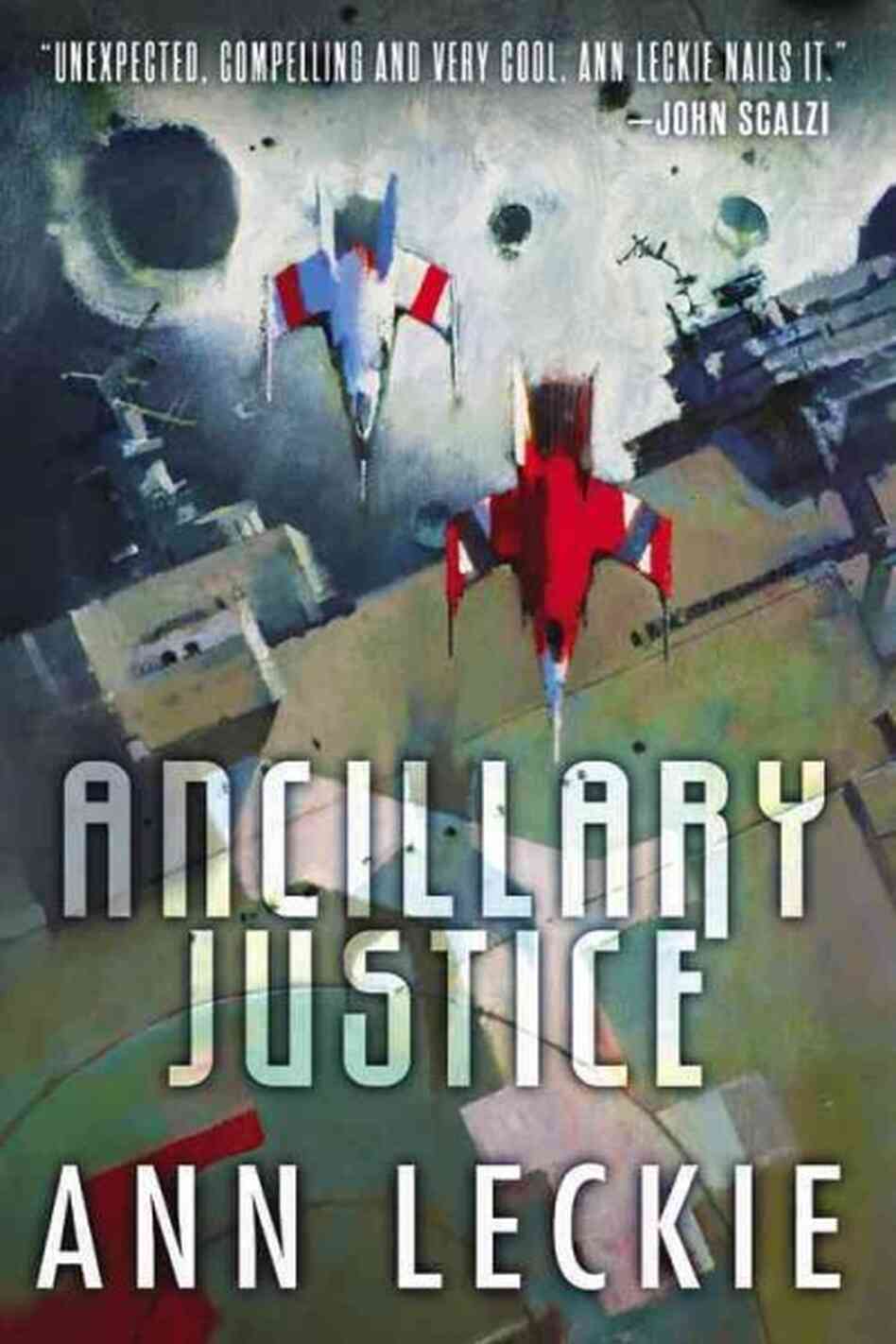People Like What They Like
So, the 2014 Hugo finalists came out. And the usual furor ensued about which authors are pushing which agendas--which is always an interesting conversation. Over at Tor.com, Liz Bourke posted "Sleeps with Monsters: How about Those Hugos?," and I found the comments section to be an interesting cross-section of SFF fans. I found one of Liz's responses to a reader, who claimed one author promoted no agenda in his work, telling. She wrote: "You don't see the message, perhaps, because you agree with it. That doesn't mean it doesn't exist, nor that it doesn't alienate as many readers as it entertains."

Best novel nominee Ancillary Justice, by Ann Leckie, which has been recommended to me a ridiculous number of times, and which I'm looking forward to reading.
There are a lot of accusations about how nominees for the Hugos are selected because they promote certain PC agendas. These usually come from readers who enjoy traditional SFF elements, in novels which are frequently led by a white-cis-male protagonist. Disclosure: I like a lot of traditional SFF stuff myself, and I'm a fan of shared-world fantasy, which tends to revisit a lot of the old tropes over and over again. (Sometimes in new and interesting ways, but that's a conversation for another post.)
I also like books with female protagonists. I like books that show different cultures and different worldviews, and I like books in which the diversity of opinions and worldviews and ethnicities reflects the same sort of complex world we live in, rather than assuming one unified cultural identity. I have sometimes surprised myself by liking books that stray outside my normal relationship comfort zones. (Triptych by J. M. Frey was one of the novels that most impressed me in 2011. If it hadn't been recommended to me, I might not have read it, as I'd have thought it wasn't my sort of thing--and I'd really have missed out.)
I think that what people who talk about "diversity checklists" may not realize is that people don't nominate those books because they promote a certain agenda (though that might be part of it). People nominate those books because they like them. They enjoy reading that type of story. Those books provide the same level of entertainment and emotional arc for readers who like that sort of thing as traditional novels do for readers who like that sort of thing. And for people who are bored of the white-cis-male-led stories, there are still plenty of people who enjoy those books, and there's not anything wrong with that (so long as those books aren't the only thing being published).
People like what they like. As long as the world continues to be a diverse place, we're probably going to keep disagreeing about what we like and what's good. And as long as we can disagree respectfully, I think that's okay.

Best novel nominee Ancillary Justice, by Ann Leckie, which has been recommended to me a ridiculous number of times, and which I'm looking forward to reading.
There are a lot of accusations about how nominees for the Hugos are selected because they promote certain PC agendas. These usually come from readers who enjoy traditional SFF elements, in novels which are frequently led by a white-cis-male protagonist. Disclosure: I like a lot of traditional SFF stuff myself, and I'm a fan of shared-world fantasy, which tends to revisit a lot of the old tropes over and over again. (Sometimes in new and interesting ways, but that's a conversation for another post.)
I also like books with female protagonists. I like books that show different cultures and different worldviews, and I like books in which the diversity of opinions and worldviews and ethnicities reflects the same sort of complex world we live in, rather than assuming one unified cultural identity. I have sometimes surprised myself by liking books that stray outside my normal relationship comfort zones. (Triptych by J. M. Frey was one of the novels that most impressed me in 2011. If it hadn't been recommended to me, I might not have read it, as I'd have thought it wasn't my sort of thing--and I'd really have missed out.)
I think that what people who talk about "diversity checklists" may not realize is that people don't nominate those books because they promote a certain agenda (though that might be part of it). People nominate those books because they like them. They enjoy reading that type of story. Those books provide the same level of entertainment and emotional arc for readers who like that sort of thing as traditional novels do for readers who like that sort of thing. And for people who are bored of the white-cis-male-led stories, there are still plenty of people who enjoy those books, and there's not anything wrong with that (so long as those books aren't the only thing being published).
People like what they like. As long as the world continues to be a diverse place, we're probably going to keep disagreeing about what we like and what's good. And as long as we can disagree respectfully, I think that's okay.